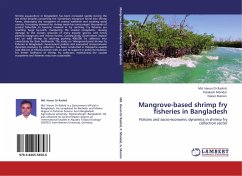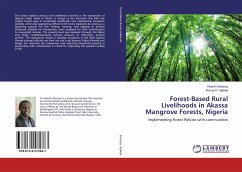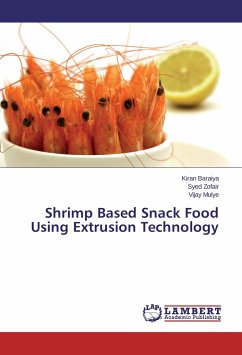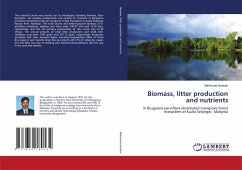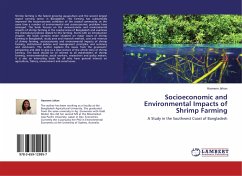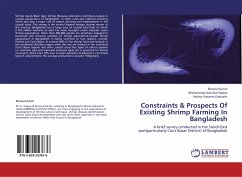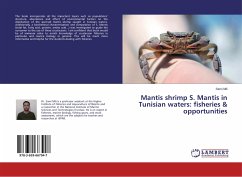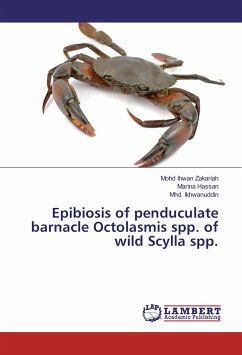Shrimp aquaculture in Bangladesh has been increased rapidly during the last three decades converting the Sundarban mangrove forest into shrimp farms, destroying the ecosystem of coastal wetlands and creating social unrests. Increasing demand for shrimp seeds has encouraged thousands of coastal fisherfolk to become involved in fry catching. Fry fisheries are resulting huge by-catch, hampering the coastal ecosystems, causing damage to the nursery grounds of many aquatic species, and newly planted mangroves and reserve forests. Consequently, Government impose ban on wild shrimp fry catching pushing 400,000 fry collectors into uncertainty for their livelihoods. The study on Mangrove-based shrimp fry fisheries in Bangladesh: Government policies and associated socioeconomic dynamics involving fry collectors has been conducted in Paikgacha upazila (sub-district) of Khulna district with an aim to support in policy formulation for better livelihood of shrimp fry collectors maintaining thecoastal ecosystems and fisheries resources sustainable.
Bitte wählen Sie Ihr Anliegen aus.
Rechnungen
Retourenschein anfordern
Bestellstatus
Storno

